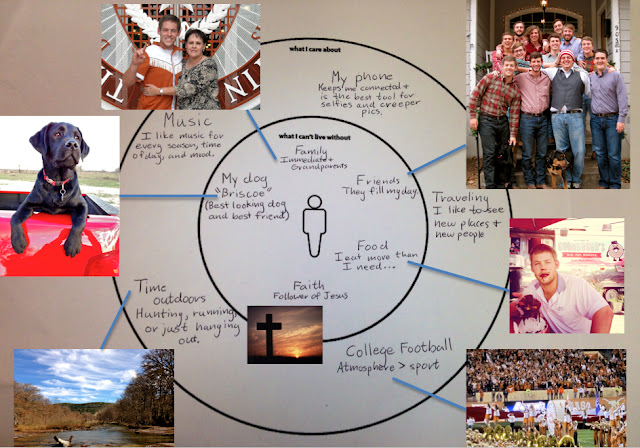I feel like the skill I learned most in this course is what it means to empathize and its importance. Learning to empathize with your customer is at the core of understanding their wants and needs. It allows you to go beyond knowing what they want and understanding the influences in their lives that drive their desires. In the case of our project we interviewed young professional women and got surface level answers. All the information we collected created a persona by the name of Allie. We had to go beyond that though. We had to observe her behavior patterns and look for similarities across different areas of her life. Allie liked things that were consistent and structured. She was new in the "real world" and expected to get in return what she gave of herself. By observing her interests and hobbies we were able to compare and find a desire for structure and quality. This is what it means to gain empathy for someone. Rather than asking them what they want, you have to dig deeper to connect their habits and preferences to motivational drivers. This allows you to better understand her thought process and ultimately realize what she wants as a consumer.
Secondly, I feel that I gained a deeper understanding of brand loyalty. Brand loyalty is not as simple as having a great product or stylish line of products. It reaches into the psychological side of a consumer and is determined by their trust in the company's ability to produce quality products. In our project with Ally we questioned to discover what attracted her to a store or company. After seeing what motivated her and impacted her, we were able to determine what factors determine reliability for her. Her work ethic, involvement outside of work, and personality in general showed that she likes things to be done right the first time. Therefore, we were able to conclude that a main factor of her loyalty was reliability. She wants to be able to count on quickly finding the quality she needs and having that same experience every time she shops.
I cannot say that I found any part of the project not to be useful. I feel like each part was necessary in learning the process as a whole. The only part I think may be less beneficial was the gathering of information and research. It was a very lengthy process out of which we did not obtain an extreme amount of information. By the time the research was completed, we were hustling to analyze it anyway we could and draw up a prototype. I feel like we could have gained more insight into empathizing if we would have been given the research and had to draw conclusions from it and compare across more individuals. This would have allowed us to spend more time failing at our first attempts to gain empathy and receive guidance toward the right mindset. We also would have had more time to try to translate this into an effective prototype.
I had a great time with my group! We bonded really well and there was always a positive energy in our meetings. I am very thankful that our personalities meshed well because there were several times along the way that we had to be patient with each other. So much of our business education has been mathematical or looking at things in terms of equations and products. So much of this project was disregarding that and trying to understand emotions. There were several occasions we asked for guidance and when Ryan or Professor Walls left we were staring at each other and scratching our heads. The most stressful part was developing the prototype. I feel like we planned our work really well throughout the semester, but we were still left with minimal time to create our prototype. I would have liked to better understand the process of generating a useful prototype. I feel like working as a group helped to complete it though. The team was very encouraging, helpful, and insightful. I learned a great deal just form listening to them talk. Listening to different people express their ideas on empathy allowed me to pick apart audible ideas to contribute to my own understanding.












